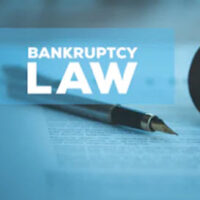Choosing Between California’s 703 and 704 Exemption Systems: A Critical Decision in Bankruptcy

When you’re facing financial challenges severe enough to consider bankruptcy, you’re likely experiencing intense stress, uncertainty, and a desperate need for guidance. One of the pivotal decisions you’ll encounter when filing for bankruptcy in California is choosing between two distinct exemption systems—the California Code of Civil Procedure Sections 703 and 704.
The selection you make will significantly influence how much of your property you can protect during the bankruptcy process. Understanding these exemption systems deeply and making an informed choice is essential to safeguarding your assets and ensuring the best possible outcome for your financial future.
Understanding Exemption Systems in Bankruptcy
In a bankruptcy case, exemptions allow debtors to protect certain assets from being sold by the bankruptcy trustee to repay creditors. California uniquely provides two separate sets of exemptions, commonly referred to as the “703 exemptions” and the “704 exemptions.” Unlike most states, California does not permit debtors to use federal bankruptcy exemptions; instead, debtors must select between these two state-specific options.
Who Can Use Each System?
Both systems are available to debtors filing for Chapter 7 or Chapter 13 bankruptcy in California. However, each debtor (or couple filing jointly) must select only one set of exemptions. You cannot mix exemptions from both systems, and once your choice is filed, it typically cannot be changed. Therefore, understanding your unique financial situation and asset composition is crucial before making this irreversible choice.
California’s 703 Exemptions: Flexibility and Cash Protection
The California 703 exemption system is often attractive due to its flexibility, offering a substantial wildcard exemption. This wildcard exemption allows debtors to protect assets or cash up to a certain amount (currently around $33,650, though this amount adjusts periodically). You can use the wildcard exemption on virtually any property, including bank account balances, stocks, and other financial instruments.
The 703 system is particularly beneficial if you don’t own significant equity in real estate or if your assets are more diverse, such as savings accounts, stocks, or valuable personal belongings. Because of its flexibility, debtors with fewer assets tied up in home equity or those who need significant cash protection usually favor the 703 exemptions.
California’s 704 Exemptions: Homestead Protection and Specialized Assets
In contrast, the California 704 exemption system emphasizes protecting equity in a primary residence. Under the 704 system, the homestead exemption is significant—ranging from approximately $339,000 to $678,000, depending on factors such as your age, disability status, and marital status. This robust homestead protection makes the 704 system ideal for homeowners with substantial equity in their homes.
In addition to homestead protection, the 704 exemptions specifically designate protections for certain types of property, including household furnishings, vehicles, tools of trade, retirement accounts, and some personal property. However, this system does not have the wildcard exemption offered by the 703 system, meaning less flexibility for miscellaneous assets or cash.
Evaluating Your Assets: Deciding Which Exemption System Fits Your Situation
When deciding between the 703 and 704 systems, your choice should reflect the specifics of your financial profile. If you possess significant equity in your primary residence, the 704 system may offer you unparalleled protection and peace of mind. Alternatively, if your assets are spread out across various categories—especially liquid assets or financial accounts—the 703 system’s wildcard exemption can provide a strategic advantage by allowing broader protection.
It is also critical to evaluate other assets, such as retirement accounts, vehicles, and tools of trade, in your decision-making process. Certain assets, like retirement accounts, are typically protected under both systems, but evaluating the specifics of each exemption system against your actual holdings will guide you to the most advantageous choice.
Strategic Planning: Getting Professional Advice
Because the selection between the 703 and 704 exemption systems is irrevocable and carries lasting financial consequences, obtaining professional legal counsel is strongly recommended. An experienced bankruptcy attorney can analyze your asset portfolio, evaluate your liabilities, and guide you toward the exemption system that best preserves your financial future.
Working with a Los Angeles bankruptcy attorney who deeply understands California’s exemption laws can significantly improve your outcomes, helping you to retain the maximum amount of property allowed by law while providing clarity and peace of mind throughout the stressful bankruptcy process.
Contact Wadhwani & Shanfeld
If you are facing financial difficulties and considering bankruptcy in Los Angeles, choosing the appropriate exemption system is critical to protecting your assets and rebuilding your financial stability.
At Wadhwani & Shanfeld, our knowledgeable and compassionate attorneys specialize in bankruptcy law and debt management, helping Californians make informed decisions tailored to their unique circumstances. Contact us today for a confidential consultation to explore your options and develop a personalized strategy designed to secure your financial future.
Sources:
leginfo.legislature.ca.gov/faces/codes_displaySection.xhtml?sectionNum=703.140.&lawCode=CCP
leginfo.legislature.ca.gov/faces/codes_displayText.xhtml?lawCode=CCP&division=2.&title=9.&part=2.&chapter=4.&article=3
